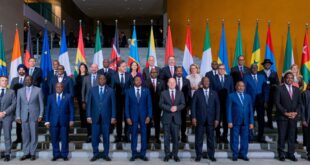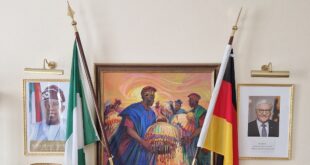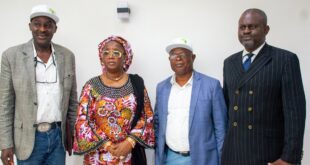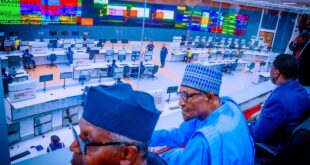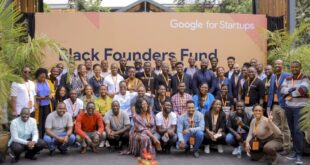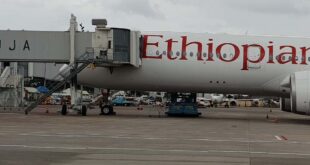German Minister for Economic Affairs and Energy, Brigitte Zypries, visited South Africa on 3 – 7 May 2017. A high-level business delegation accompanied her. The visit centred around the presentation of Germany’s new plan for engagement with Africa at the World Economic Forum on Africa 2017. The Forum, which took place in Cape Town, was attended by more than a thousand political and business leaders from Africa and the world.
During her visit, the Minister opened the Business Forum in Cape Town marking the 65th anniversary of the Southern African German Chamber of Commerce and Industry, held bilateral meetings with South African politicians, and lent her support to the signing of framework agreements on future co-operation between German industry and African countries. Moreover, Minister Zypries took the opportunity to present her ‘Pro! Africa’ concept to African business and government leaders.

Minister Zypries said: “Both politically and economically, Africa is a continent of challenges, but particularly of opportunity. It offers great possibilities for German companies. Our ‘Pro! Africa’ initiative aims to create an economic partnership of equals between Germany and Africa. We regard Africa as an equal partner. The concept is intended to generate more private-sector investment and jobs in Africa. In particular, we would like to launch a partnership for digitisation and innovation with Africa.
Digitisation, innovation and good training provide a good basis for further economic development on the African continent. We aim to allocate 100 million euros towards this. And we are focusing our instruments to promote foreign trade and investment more on Africa with a view to supporting investors who wish to invest in a sustainable future for Africa and create jobs and value chains there. The days in which the world was divided into ‘givers’ and ‘receivers’ are over.”
The new digitisation and innovation partnership brings the innovative drive of German and African entrepreneurs together with a continental bridge for start-ups. The spread of modern digital technologies is taking place extremely quickly in many African countries. It is common for entire stages of development to be leapfrogged, e.g. in mobile banking or communications. To this end, a start-up financing fund is to be built up, offering an additional 100 million euros. Further to this, there is also to be a new German Accelerator in Africa, and the EXIST Start-up Germany programme is to be expanded to include Africa.

The targeting of the tried-and-trusted instruments of external economic promotion on Africa will give companies further incentives to invest there. Also, sectoral centres of excellence for tourism, the environment, raw materials and the water industry are to be set up. Vocational training and skills development for managers in Africa are to be strengthened. New energy partnerships will enable the Economic Affairs Ministry to support selected partner countries as they establish a sustainable, secure and low-cost energy supply.
In 2016, average economic growth in Africa stood at about 3.7 per cent, higher than the global growth rate of 3.1 per cent. The International Monetary Fund estimates that around 18 million jobs in Sub-Saharan Africa will need to be created each year up to 2035. Germany’s bilateral trade with Africa stood at approximately 41 billion euros in 2016, and the stock of German direct investment in Africa amounted to around 9.2 billion euros.
© BMWi
 THE AFRICAN COURIER. Reporting Africa and its Diaspora! The African Courier is an international magazine published in Germany to report on Africa and the Diaspora African experience. The first issue of the bimonthly magazine appeared on the newsstands on 15 February 1998. The African Courier is a communication forum for European-African political, economic and cultural exchanges, and a voice for Africa in Europe.
THE AFRICAN COURIER. Reporting Africa and its Diaspora! The African Courier is an international magazine published in Germany to report on Africa and the Diaspora African experience. The first issue of the bimonthly magazine appeared on the newsstands on 15 February 1998. The African Courier is a communication forum for European-African political, economic and cultural exchanges, and a voice for Africa in Europe.








